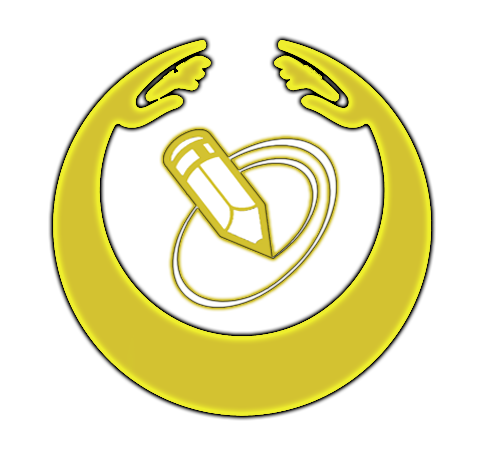N.J. Commissioner Offers Insurance Purchasing Tips for Small Businesses
Making the right
insurance choices can have significant impact on the small business owner’s
operation costs. With that in mind, New Jersey Department of Banking and
Insurance Commissioner Ken Kobylowski offered some basic tips for small
businesses for purchasing or updating their insurance coverage.
There are
different types of policies available to small business owners that range from
life insurance options to mandatory workers’ compensation.
Commissioner
Kobylowski said small business and home-based business owners potentially have
several different policies that can provide necessary protections.
“Small
businesses should annually review their insurance policies to verify that their
coverage meets their needs,” Commissioner Kobylowski said. “This could include
workers’ compensation, commercial auto, business property and liability, group
health and disability as well as group life and key-person life insurance.”
Commissioner
Kobylowski offered the following tips:
What steps should a small business owner
take?
• Shop around –
Examine rates from several companies, being sure to compare plans providing
identical coverage.
• Protect
yourself – Stop. Call. Confirm. Verify with the Department that the companies
quoting coverage are licensed by the State of New Jersey by calling
1-800-446-7467 or by checking online at www.dobi.nj.gov. Then use the National
Association of Insurance Commissioners’ Consumer Information Resource (CIS) at https://eapps.naic.org/cis/ to compare a
company offering coverage to other firms in the industry using their consumer
complaint ratios.
• Review
Annually – Small business insurance needs change as a company grows. Additional
machinery purchased for a manufacturing plant or expansion to a larger facility
could require an increase in property limits. Additions to an auto fleet could
mean changes in a commercial auto policy or sales growth could result in the
need for more business continuation coverage.
Commissioner
Kobylowski reviewed the following policy options a small business owner might
want to consider:
1. Workers’
Compensation. State law requires that all New Jersey employers, not covered by
federal programs, have workers’ compensation coverage or be approved for
self-insurance.
Typically,
workers’ compensation covers the employee’s medical expenses, rehabilitation
costs and lost wages if he or she is injured on the job. If an employer does
not have workers’ compensation and an employee is injured on the job, the
business may be liable for any medical expenses that individual incurs. The
company might also face fines and penalties for noncompliance.
2. Property.
Property insurance protects small business owners from losses due to damage to
physical space or equipment and as a result of theft. For insurance purposes, a
business’ property includes the physical building in which it resides, as well
as its other assets.
All of the
following, owned or leased, can be considered business property: the actual
building; inventory; furniture, equipment and supplies; machinery; computers
and other data processing equipment; valuable papers, books and documents;
artwork and antiques; television sets, VCRs, DVD players, and satellite dishes;
signs, fences and outdoor property not attached to a building; and non-tangible
items, such as trademarks and copyrights.
3. Flood
Insurance. Flood is not a covered peril in a standard business property
insurance policy. Business owners can purchase flood coverage from the National
Flood Insurance Program (NFIP), administered by FEMA. Flood insurance policies
have a 30 day waiting period before going into effect. To find out more about
the NFIP consumers can go to www.floodsmart.gov. If the flood insurance
property limits from the NFIP are inadequate to cover a business, owners can
check with an insurance agent or carrier representative about additional
coverage options.
4. Ordinance or
Law Coverage. This pays for rebuilding a destroyed property so that it will
meet the current building codes. Older structures damaged may need upgraded
electrical, heating, air conditioning and plumbing units based on current
municipal codes. This covers the additional cost to upgrade due to new codes.
5. Business
Interruption/Continuation. This type of insurance covers lost earnings due to a
loss covered by one of the property insurance plans purchased, such as a fire
or theft that shuts down a business for an extended period of time. Business
interruption/continuation insurance covers expenses associated with running a
business, such as payroll and utility bills, based on the company’s financial
records.
Business
interruption/continuation coverage can be added to a property insurance policy
or purchased as part of a package insurance product.
6. Liability.
This insurance product covers workplace risk, for example, if an individual
falls while visiting a business premises, or a customer is hurt by a product a
business sells, the business owner can be held responsible. Standard policies
do not provide protection against sexual harassment, professional liability or
commercial auto or truck claims.
7. Commercial
auto. All motorized vehicles, whether used for personal or business purposes,
need auto insurance. Automobile liability insurance – required by most states –
covers medical expenses for injured persons and damages to the property of
other individuals as a result of a motor vehicle accident caused by the
insured’s negligence.
While the types
of coverage provided by personal and commercial auto insurance policies are
essentially the same, there are important distinctions. Typically, commercial
auto insurance policies have higher liability limits, for example $1 million.
They also may have provisions that cover rented and other non-owned vehicles,
including employees’ cars driven for company business.
Several factors
related to ownership and use of vehicles determine whether a personal or
commercial policy is appropriate. These include: who owns or leases the vehicle
–individually or the business as an entity; who drives the vehicle – owner or
employees; and how the vehicle is principally used – for example, transporting
people, delivering packages or carrying hazardous materials.
8. Umbrella
Insurance. This coverage provides protection for an individual or business
above the limits for a primary policy. It is recommended for a business with a
value above its primary limits for various policies selected. It is also a
smart purchase for high net worth individuals. A policy can cost relatively
little for the protection it provides.
“Small business
owners should discuss these insurance matters with a licensed insurance
professional at an agency or carrier,” said Commissioner Kobylowski. “A life
and health insurance professional should also be consulted to make sure every
aspect of a small business is protected.”



















Whenever business are small or big, salesforce administrator always help for making successful business. They guide for increasing sales of the business.
ReplyDelete